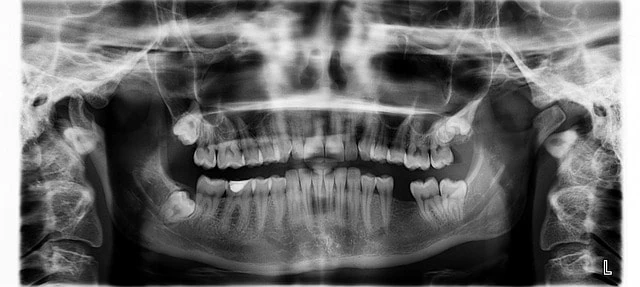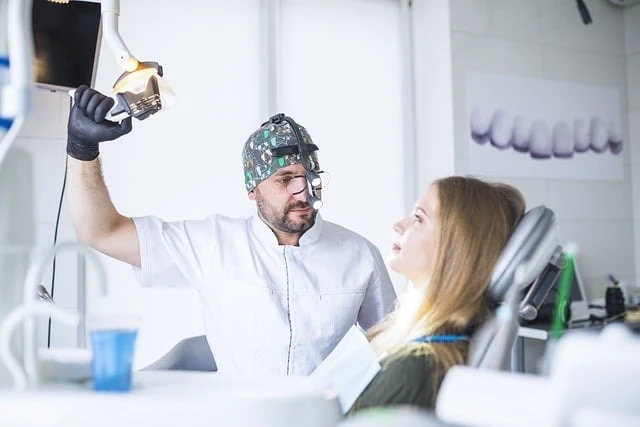Wisdom teeth removal is often necessary to prevent pain and dental issues. This guide will explain why you may need removal, the symptoms to watch for, and what to expect before, during, and after the procedure.
Key Takeaways
Wisdom teeth can cause significant dental issues, including infection and pain, necessitating their removal if they are impacted or misaligned.
Recognizing symptoms such as jaw pain, swollen gums, or persistent discomfort is crucial for determining the need for extraction.
Proper post-surgery care and vigilant monitoring for complications are essential for a smoother recovery after wisdom teeth removal.
Understanding Wisdom Teeth and Their Issues

Wisdom teeth, often referred to as third molars, are the final permanent teeth to appear. They typically grow in the back corners of the mouth. These lower wisdom teeth typically appear during late adolescence or early adulthood, a time when one is supposedly gaining wisdom, hence the name. Many people wonder how many wisdom teeth they will have.
However, wisdom teeth can often be more trouble than they’re worth. Common issues include infection, pain, and complications due to a lack of space in the jaw. When there isn’t enough room for these teeth to emerge properly, they may become impacted, leading to further problems like pain and infection. Impacted wisdom teeth can cause significant damage to adjacent teeth and even the jawbone.
Dentists often recommend wisdom teeth extraction to avert these issues. Impacted or misaligned wisdom teeth can cause severe dental problems like tooth decay and gum disease if left unattended. Therefore, understanding wisdom teeth and their associated issues is vital for maintaining good oral health.
Symptoms Indicating the Need for Removal
Recognizing symptoms that indicate the need for wisdom teeth removal is important. Impacted wisdom teeth often cause pain and damage to adjacent teeth. Swollen gums and pain when opening the mouth are also key signs that these teeth may need to be extracted. If you feel pain or pressure around your upper jaw, this could suggest that your wisdom teeth are affecting your sinuses.
Persistent jaw pain is another telltale sign, often indicative of infection or other complications related to wisdom teeth. These teeth, especially if an impacted wisdom tooth, can increase the risk of gum disease and dental infections, making it crucial to address any symptoms early.
Severe pain, swelling, and the presence of cavities are clear indicators that a wisdom tooth might need to be removed. Stay vigilant and consult your dentist if you experience any of these symptoms to prevent more severe health problems.
The Process of Wisdom Teeth Removal

The process of wisdom teeth removal is a fairly common procedure that typically occurs in an outpatient setting. It involves several stages, from the initial consultation and evaluation to anesthesia options and the actual extraction procedure. Understanding these steps can help alleviate any anxiety about the surgery.
The consultation phase includes a thorough examination and possibly X-rays to assess the condition of your wisdom teeth. Depending on the complexity of the extraction, different types of anesthesia can be used to ensure your comfort during the surgical procedure.
Finally, the extraction itself involves remove wisdom teeth to prevent further dental issues.
Consultation and Evaluation
The initial consultation with your dentist or oral surgeon is crucial for assessing the necessity of wisdom tooth removal. During this visit, the dentist will conduct a thorough examination and may take X-rays to get a clear view of the position and condition of your wisdom teeth. This helps in determining whether the teeth are impacted and the potential complications that may arise.
If a wisdom tooth is deeply impacted or the removal is expected to be complex, the dentist might refer you to an oral surgeon. This specialist will have the expertise to handle more challenging extractions. Discuss your dental and medical history during this consultation, as it can influence the dentist’s recommendations.
The cost of wisdom tooth removal varies significantly based on the complexity of the extraction, typically evaluated during the consultation. Understand all aspects of the procedure and ask any questions to ensure you are fully prepared.
Types of Anesthesia Used
When it comes to wisdom tooth extraction, several anesthesia options are available to cater to individual needs and preferences. For simpler extractions where the tooth is fully erupted, local anesthesia is often sufficient. This numbs the area around the tooth, allowing the procedure to be carried out without pain.
For patients who are anxious about the surgery or when the extraction is more complex, IV sedation can be used alongside local anesthesia. This helps to ease apprehension and ensure a smoother experience. In some cases, general anesthesia might be recommended, especially if multiple wisdom teeth are being removed at once.
The choice of anesthesia depends on various factors, including the complexity of the extraction and the patient’s comfort level. Discuss these options with your dentist or oral surgeon to determine the best approach for your situation.
The Extraction Procedure
The actual extraction procedure for wisdom teeth can vary depending on whether the teeth are impacted. In cases where the teeth are fully erupted, the extraction is relatively straightforward. However, for impacted wisdom teeth, a surgical approach might be necessary. This involves making an incision in the gum, removing some bone around the tooth, and possibly cutting the tooth into smaller pieces for easier removal.
During the procedure, dentists use specific tools such as forceps and elevators to aid in the tooth removal. The complexity of the extraction largely depends on the position of the teeth and the extent of impaction.
Wisdom teeth frequently cause dental issues, which is why their wisdom teeth removed is often recommended. Your dentist will provide professional advice and recommend the best course of action based on your individual case.
Post-Surgery Care and Recovery

Proper post-surgery care is vital for a smooth recovery after wisdom teeth surgery. Adhering to the dentist’s guidance can significantly reduce pain and minimize the risk of complications. Immediate aftercare and long-term recovery tips are essential for ensuring proper healing.
Follow specific steps to manage pain, control bleeding, and prevent infections. Additionally, knowing when to contact your dentist for any complications can help in addressing issues promptly and ensuring effective treatment.
Immediate Aftercare
In the first 24 hours after wisdom tooth removal, it’s typical to experience slight bleeding. To minimize bleeding, patients should remain upright and use pillows to elevate their heads. Applying ice packs for 20 minutes on and 20 minutes off can help reduce swelling during this period.
Managing pain is another critical aspect of immediate aftercare. Your dentist may prescribe pain medications, and it’s essential to follow the instructions carefully. Being aware of the recovery process and proactive measures can help facilitate healing and reduce fear and anxiety associated with the procedure.
Moreover, specific steps such as avoiding vigorous rinsing and not using straws can help prevent complications like a dry socket, which occurs when the blood clot at the extraction site is lost.
Long-Term Recovery Tips
Long-term recovery after wisdom teeth removal involves careful monitoring and adherence to certain guidelines. Patients are advised to consume soft, non-chewy foods for at least a week post-surgery to avoid irritating the extraction site. Symptoms like swelling and discomfort usually peak two to three days after surgery and should gradually decrease.
Keep an eye on signs of infection, like persistent pain, foul-tasting discharge, or a fever exceeding 38 degrees Celsius. Inform your dentist immediately if you experience a fever that persists beyond the first two days post-surgery.
Proper hygiene and gentle care of the extraction site are essential for a smooth recovery. If bleeding cannot be controlled after applying pressure for an hour, contact your dentist right away.
When to Contact Your Dentist
Staying vigilant about your symptoms after wisdom tooth removal is critical to ensure proper healing. If you experience increased pain, swelling, or unusual discharge, these could be indicators of infection, nerve damage, or other complications. Timely communication with your dentist can prevent these issues from escalating.
Dry socket is a painful complication that can arise post-extraction. Knowing how to minimize its risk and recognizing the symptoms early can help in managing it effectively. Regular follow-up appointments with your dentist are essential for monitoring your healing progress and addressing any concerns promptly.
Delaying the removal of wisdom teeth can lead to significant dental issues, so it’s important to address any pain or infection related to wisdom teeth as soon as possible.
Risks and Complications

Despite the benefits of wisdom tooth removal, there are potential risks and complications associated with the procedure. Infection is one of the most common risks and requires prompt attention to prevent it from spreading. Nerve and blood vessel injuries, while rare, can occur during the extraction process. Impacted wisdom teeth can lead to the development of cysts or tumors in the jawbone, which can damage surrounding structures. Understanding these risks helps patients ensure better outcomes and recovery.
The use of anesthesia during wisdom teeth removal is generally safe, with major complications being rare. However, it’s important to be aware of the potential risks and discuss them with your dentist or oral surgeon.
Benefits of Removing Wisdom Teeth Early

Removing wisdom teeth early, even if they’re asymptomatic, is often recommended by dental specialists to prevent future dental issues. Younger patients generally experience fewer complications and a safer procedure when their wisdom teeth are extracted early.
Regular dental visits are crucial for monitoring the emergence of wisdom teeth and identifying potential issues early. This proactive approach can contribute to better overall oral health and minimize the development of pockets and gum tissue problems in neighboring teeth.
Early removal reduces the risk of complications and ensures a smoother recovery, making it a wise decision for maintaining long-term oral health.
Choosing the Right Dentist or Oral Surgeon
Choosing the right dentist or oral surgeon for wisdom teeth extraction is critical for a successful outcome. Start by consulting your general dentist for recommendations on experienced oral and maxillofacial surgeons. During consultations, inquire about the surgeon’s experience specifically with wisdom teeth removal.
Evaluate the surgeon’s specialties and background, and look for additional information on their education and professional affiliations online. Check if the surgical facility is accredited and has a good reputation.
Reading patient reviews can provide valuable insights, but be sure to consider them critically, as experiences can vary widely. Choosing a qualified professional can make a significant difference in the success of your wisdom teeth surgery and recovery.
Summary
In conclusion, wisdom teeth removal is a common procedure that can prevent a host of dental issues when approached correctly. Understanding the nature of wisdom teeth, recognizing the symptoms indicating the need for removal, and knowing what to expect during the removal process are essential for a smooth experience.
Choosing the right dental professional and adhering to post-surgery care guidelines are crucial for a successful recovery. By taking a proactive approach to your oral health, you can ensure a healthier, pain-free future.
Frequently Asked Questions
How do I know if I need my wisdom teeth removed?
If you experience severe pain, swelling, gum disease, tooth decay, or damage to adjacent teeth, it’s likely time to consider wisdom teeth removal. A consultation with your dentist will give you a clear diagnosis and next steps.
What type of anesthesia will be used during the procedure?
The type of anesthesia used during the procedure will depend on the complexity of the extraction and your comfort level, with options including local anesthesia, IV sedation, or general anesthesia. It’s essential to discuss your preferences with your healthcare provider to ensure your comfort and safety.
What should I expect during the recovery period?
During the recovery period, expect to manage bleeding, swelling, and pain initially, and adhere to dietary recommendations while monitoring for signs of infection. Following your dentist’s instructions closely is crucial for a smooth recovery.
What are the risks associated with wisdom teeth removal?
Wisdom teeth removal carries risks such as infection, nerve damage, and the formation of cysts or tumors in the jawbone. It’s essential to discuss these potential complications with your dentist or oral surgeon for better preparation.
Why is it beneficial to remove wisdom teeth early?
Removing wisdom teeth early minimizes the risk of complications and promotes better oral health. This proactive approach leads to a safer procedure overall.
